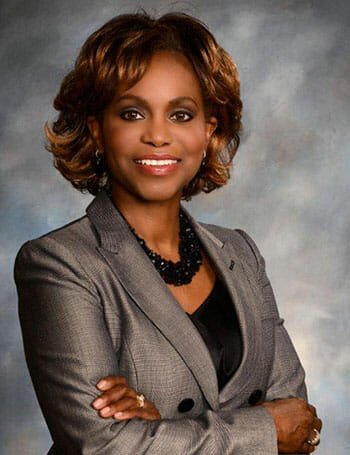What Black History Month Teaches Us About Civic Culture
By Natalye Paquin, CEO, Points of Light

Black History Month offers us a time to reflect on the many contributions African-Americans have made to this country and the world. Growing up as the children of hard-working parents in a melting pot community, the school my brother and I went to paused on a variety of special commemorative days to celebrate the rich diversity of all of our cultures and ethnicities. On black history day, we did book reports, made posters and created other projects to celebrate prominent African Americans like Dr. Charles Drew who discovered blood plasma; Alice Ball, a chemist who created the first effective treatment for leprosy; and, of course, the works and teachings of Dr. Martin Luther King.
As children, our parents taught us that to whom much is given, much is required, and that words and deeds matter. They lived these values out every day. The stories about their involvement in the civil rights movement are vivid, and I specifically recall, as a child, being bored as my brother and I played together sitting at polls while our parents volunteered as poll watchers for various elections. These early experiences and lessons from school have left an indelible imprint on my life, and what I recognize today is that these non-negotiable family values are distinctly connected to the work and service of many historical figures in black history whom we celebrate.
The achievements of these leaders are as diverse as their individual backgrounds but a common theme throughout their lives is service to others. A visit to the National Museum of African American History and Culture in Washington, D.C., will bring this to life. For example, Sojourner Truth became a prominent abolitionist and women’s right’s advocate but some of her earliest acts of civic engagement were as a volunteer when she collected supplies for black regiments during the Civil War. George Washington Carver, who extracted oil from peanuts, did so as part of his drive to find solutions to the debt and poverty that burdened black farmers – a civic or social entrepreneur of his time. And Muhammed Ali, who became a humanitarian and agent of goodwill after his boxing career because, as he famously said, “service to others is the rent you pay for your room here on earth.”
Great leaders in black history created change that has made all of our lives better. Today, there is an expectation of service to others – often talked about in terms of purpose but with the same goal in mind. But the world we seek to serve is continuously changing, led by constant innovations in technology and data, the evolution and rapid rise of social networks, a digitally native generation now entering the workforce, and a growing leadership crisis. If you are in the volunteering and service sector, you know that we must evolve to continue to make an impact.
We see that evolution in African-American leaders emerging today. These young leaders use technology and data in innovative and disruptive ways to benefit those they seek to serve. Their approach to serving others is nontraditional and representative of the next wave of service. They are social entrepreneurs who are engaged in local and digital communities. And they are rebuilding trust with these communities and recognizing the strength of the next generation. Leaders like Laura Weidman Powers and Jeff Boodie, graduates of the Points of Light Civic Accelerator — Laura started the nonprofit Code2040 to close the racial wealth gap by placing black and Latino engineering students in top tech firms; and Jeff Boodie developed a hiring platform that connects businesses with tech-savvy generation Z candidates in underserved communities.
At Points of Light, we too see the continuous societal shifts as an opportunity to ensure that society’s greatest needs are met because people have made volunteering and service, in any form, an expected part of everyday life. When individuals recognize themselves as citizens in the fullest sense they become partners in civilization and in our collective humanity. Igniting this civic culture is the pathway to carrying on the legacy and learnings of the leaders we learned about growing up and who we celebrate this month.
